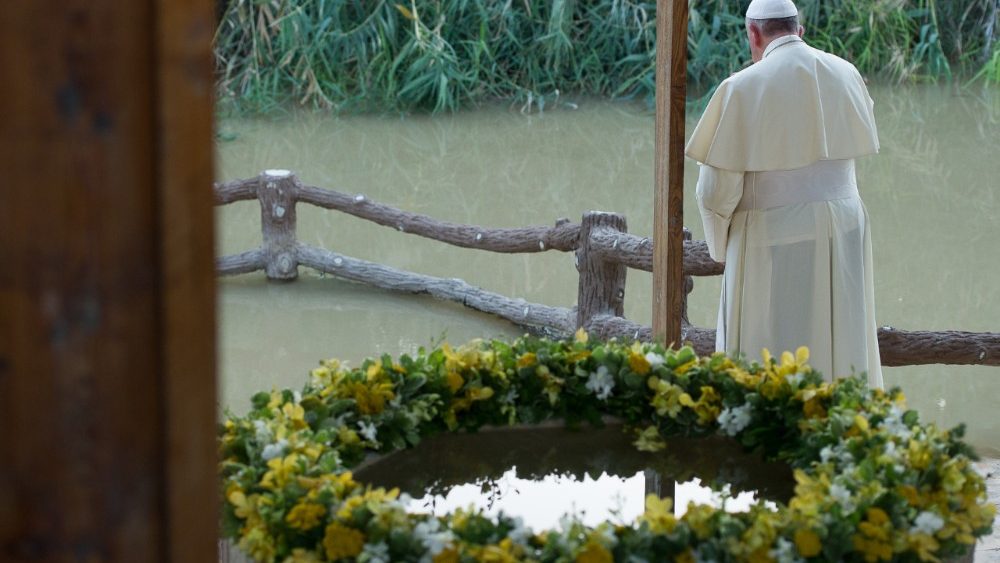Epiphany of the Lord
“Laudato Si’ Journey – Sunday Gospel”
Sunday, January 7
EPIPHANY OF THE LORD – CYCLE B
MT 2, 1-12
This Sunday’s story describes the Magi’s visit to Jesus and his family, and prompts us to reflect on our ability to set out on a journey listening to creation and God’s word.It all takes place, as always, within a wonderful immersion in creation, the the setting for all our human affairs and stories about Jesus.
It can be a very interesting starting point to reflect on how we position ourselves in relation to the two books through which God reveals himself to us: the Book of Scripture and the Book of Creation. Both of these books need to be deciphered, they require the help of experts to interpret them, and both can lead us to a sense of fulfillment and deepened happiness.
“Jesus was born in Bethlehem of Judea, in the days of King Herod,” this places the historical event in a well-defined context. WhileMatthew’s first chapter focuses on past history, with the genealogy and Joseph’s account, from now on with the Magi sceneChrist’s future history is presented to us. These people are pagans, people who don’t know him and yet somehow, in some way, they represent each one of us. In the same story we have the massacre of the innocents, the flight into Egypt and the persecution that Jesus, and those who set out with him, experience.
The expression “Magi from the east arrived” offers us little information. We do not know how many there were nor where they came from precisely. The only certain thing is that they are strangers to Israel and that they have the habit of looking at the sky. They look at it for scientific reasons – to set time and study the seasons – but also to grasp the signs of the times. Here is one beautiful trait of a true believer: s/he looks at nature, the same world, with distracted eyes, but at the same time wonders, “what’s the meaning of this?”
Science and faith can and must walk together. In fact, King Herod, questioned by the Magi and summoning the theologians of the time: “he inquired of them where the Messiah was to be born.” They try to answer the question: “Where is he who was born?”, where is the place? Sacred Scripture allows us to find the answers; God has given us this key to understanding the world. The Magi, like us, are driven by the desire to discover and seek βασιλεὺς τῶν Ἰουδαίων, “the king of the Jews”, the same writing that we find on the cross at the end of the Gospel. He is not the king of Judah, as is Herod, but indeed much more. They seek Him because they’ve seen a star….. something that asks them to go beyond.
This going beyond is what distinguishes the science of the Magi from that of Herod and the high priests: the former set out to worship Him, the others become upset, do careful research and then try to kill Him. The reading of the scriptures leads to a small place, Bethlehem, but the Magi realize that the object of the search is no longer just the place, but goes beyond that. Faced with Scripture, we can have the attitude of the high priests – who scrutinize but remain in their place – that of Herod – who, being carefully informed, plans to destroy the Word – and finally the attitude of the Magi – who set out on their journey. The Word gives us the freedom to choose.
“And behold, the star that they had seen at its rising preceded them”, because in Jerusalem the star seems to have disappeared, the reading from the Book of Creation leaves room for the Word of God. But as soon as they left, they saw it again and “they experienced great joy”. Where God is present, there can only be joy. Laudato Si’ my Lord! How beautiful. Our desire, our search, when properly directed, leads to joy. This should be the basis for evaluating our lives.
What happens when they meet Mary and the child? “They prostrated themselves and did him homage“, the Greek term προσεκύνησαν αὐτῷ indicates “bringing to the mouth”, kissing and eating. In the manger, our joy is to feed on and show this affection… to kiss, to love. It is in love that they meet Him. Loving is the only way to say “thank you” to love. Indeed, it is in the face of love that we say thank you by handing over our gifts.
Today’s Gospel ends with the expression “they departed for their country by another way”. However, the correct term would be ἀνεχώρησαν, which is not a going home but a becoming an “anchorite”, separated from the world, a hermit. Jesus will also withdraw, and the same term will be used. We Christians should try to be like this, when we truly encounter God in our brothers and sisters, in creation, guided by the Word and the star: Yes, we should continue to experience the world but with new eyes.
On this Epiphany Sunday, we pray to the Lord so that after the real encounter with Him, our hearts, filled with joy like those of the Magi, can sing with the words of the Canticle of the Creatures by Saint Francis of Assisi: “Praise and bless my Lord, and give Him thanks and serve Him with great humility” (FF 263).
We sincerely wish you a wonderful Sunday!
Laudato Si’!






